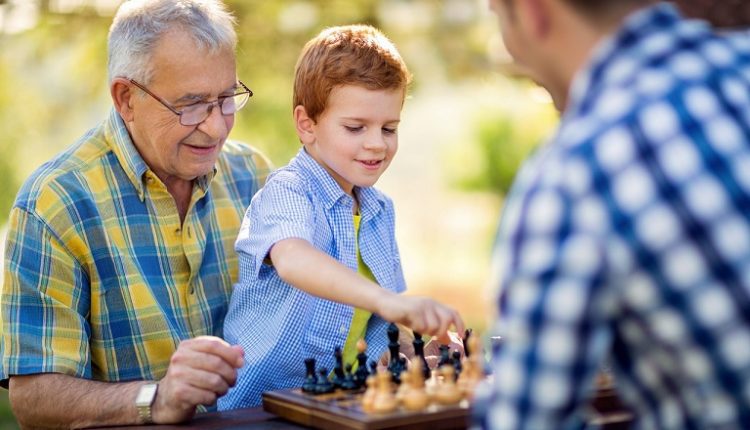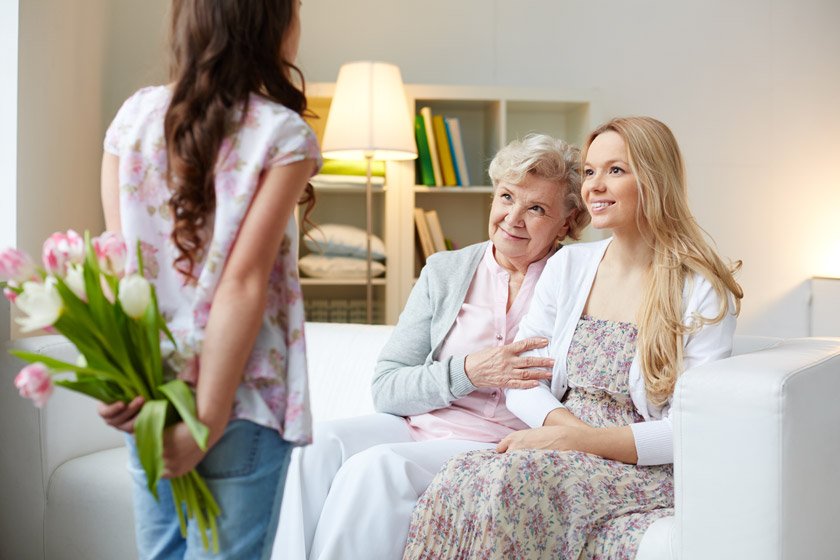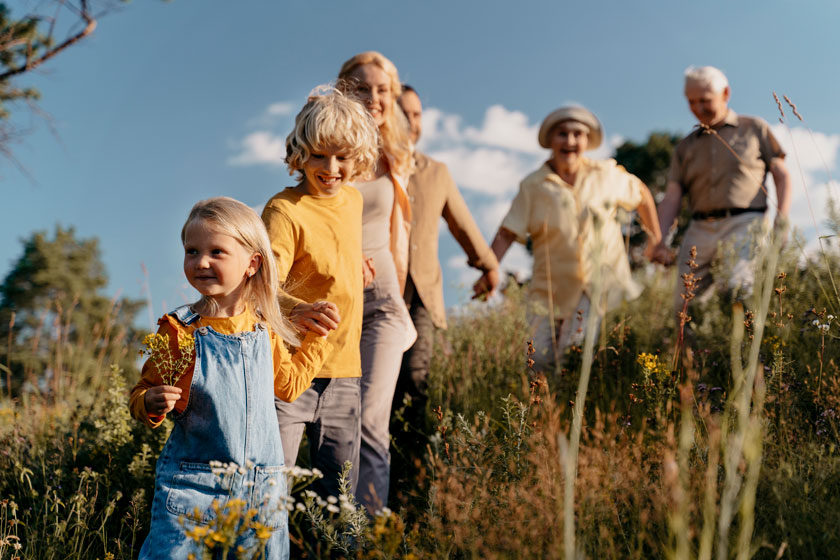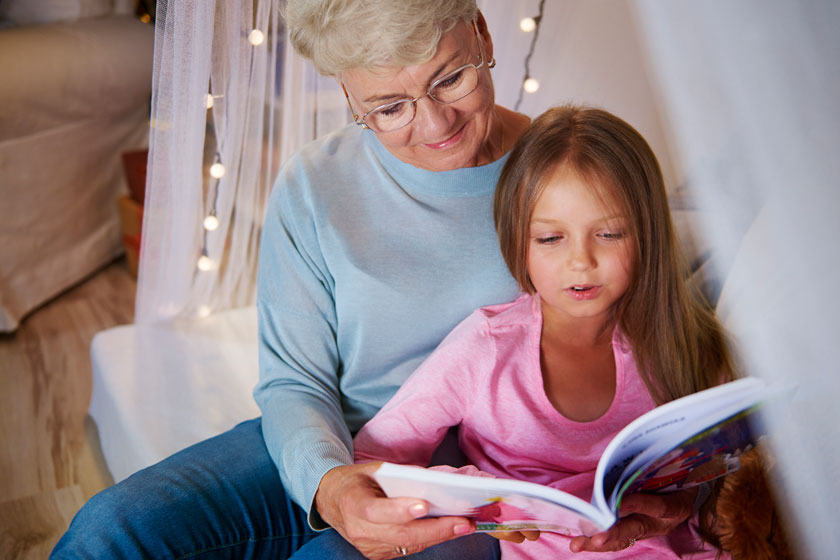
How to Instill the Value of Respect for Elders in Your Children?
Kids may respect older adults based on what they learned at home and in society. Aging is the perfection of men, and human beings entering this period after lots of effort can use new opportunities to evolve. This period is when they can make their position more substantial in society and family. Respecting the elderly is a must, and respecting them can increase their sense of satisfaction from the journey they are going through.
Seniors can spend their golden years feeling valued and effective if they adapt to unstoppable changes and losses with realism and flexibility. In this period of life, the most significant thing is to witness and enjoy one’s achievements such as children, friendships, productive works, and cultural, social, or economic services.
If an older adult had a positive attitude towards old age, reviewing the past would also be enjoyable.
Contents
Attitudes About Aging
However, there are negative attitudes about aging in different parts of the world, but in some societies, such as Canada, the elderly have a unique social position. The type of community outlook positively influences the lifestyle of the elderly. Of course, social change and the advancement of public knowledge have increased awareness of the aging process. For example, today, it is no longer strange to see an older adult running and exercising in sportswear in the park. In comparison, this image was a bit far-fetched fifty years ago.
This evidence shows that our attitude towards old age, how we interact with the elderly, their role in the family and society has changed. This would gradually come to change our kids’ behaviour towards respecting seniors.
Of course, it is notable that old age can associate with physical, cognitive, and social problems that eventually lead to boredom, irritability, or even depression, which is when interacting with older adults becomes a little challenging. Care and attention to the care of elderly parents and acquiring the necessary coping skills to deal with their problems can be a good model for children. In this case, you can also insure yourself in old age.

Take Care of Your Parents
Below are some notes on how to take care of the elderly:
- Respect them in all circumstances. Remember that your parents did not always need your attention and care but worked to protect and educate you for many years, so it is only fair to maintain their dignity in return.
- Discuss social, political, cultural, and economic issues with them. Talking to family members about various issues will help alleviate the anger and loneliness of older people. This behaviour will make them feel good, and they will see that their opinion still matter.
- Smile even when you see them misbehaving or change the situation by changing the subject. If the situation gets difficult for you again, it is best to leave the place and turn tension into silence. Your child will learn how to cope with the problematic situation and do the same when it’s time.
How to Teach Children to Respect the Elderly
- Use whatever behaviour you like to see in your child in your interactions because you are your child’s role model.
- Talk to your child about different issues. In addition to increasing the sense of security and intimacy, talking to kids teaches them a lot about other topics. The child will also learn it is safe to consult with you on various issues.
- Respect other family members, particularly the elderly, and value them so that your child learns what is acceptable behaviour what is not.
- Teach your child what you need with the help of books and puppet stories. With these methods, the child sees himself as a protagonist and learns a lot. You tell the child the appropriate and inappropriate behaviours and their consequences in the form of a demonstration. Then they become familiar with the effects of the actions.
- Talk to your child about the behavioural impact of others’ manners in a simple, understandable tone. Never humiliate or blame him when talking. Loving expression doubles the effect of whatever you say.
- Encourage your child to gather, entertain, and greet friends and family, but do not insist. When they do something positive, thank them for realizing the importance of their worthy behaviour.
The Effect of Family Values on Raising Children

Parents establish the family atmosphere and public relations, and the grandparents set cooperation, competition, respect standards.
The family atmosphere is based on family values and is a model of human relationships for children. Of course, family members do not always have to agree on everything, but it is necessary for each voice to be heard.
The Impact of Role Models on Children’s Lives
Children learn transcendent values in life by observing their parents’ behaviour and actions.
It would be best to try to be a complete and appropriate model. Model of doing the values you want. Then your child is encouraged to do and repeat your work by observing the importance of your existence.
Children pay close attention to and get influenced by the behaviour of adults around them. Don’t forget that children pay more attention to our behaviour than what we say. Children learn to respect seniors and those around them; when you respect your parents and the elderly.

Conclusion
In general, parents are the first teachers of the children to respect seniors. They can be a positive and negative role model for the children.
So try to be a good role model for your child when your parents are old. Teaching good value to children enhances their relationship with the elderly and improves aging in the future.
I agree children learn from their parent’s behaviour; it’s not like you can tell your children to respect the elderly, and they immediately do! Children need to see and feel the connection and respect in the family. I also believe doing group activities that involve seniors and children in the family helps them have a stronger bond, therefore, a more respectful relationship. I have two sons; they love their grandparents and enjoy spending time with them.
I couldn’t agree more! You’re right.
They are like copying machines saying and doing whatever they see from their parents.
I honestly think children don’t learn how to behave, but they reflect it from what they see in their parents and other people around them. So it is undeniable that the quickest way to teach the kids to respect older people is to actually respect older people.
I can’t agree more! I loved my mum and treated her respectfully, and now my children and grandchildren treat me well and show it to me.
I believe that kids learn from us. If we want to teach our children to respect older adults, they should see us respect them. if you treat seniors with respect, sure that your children will do the same
What you said reminds me of the proverb “actions speak louder that words.” Though it’s beneficial and influential to talk to children and teach them things, what shows your beliefs is how you behave. On top of that, as mentioned above, reading stories with these contents works a lot on children too.
I honestly think society is moving towards a society in which children and younger generations rule the family. They get what they want, and their parents and guardians never disagree with them. That’s why I think it’s hard to teach the kids of this age the value of respecting their elders.
Teach them respect towards ALL People. Teach them kindness & generosity.
Teach them to respect themselves and their surroundings.
Show them respect, so they naturally have the ability to be respectful. This is something that should be considered normal behaviour.
Teaching respect for everyone and everything starts from day one. Hold them accountable for their actions. Be a parent first and a friend later. Teach acceptance, tolerance and patience.
Give them respect first. Children learn more by what they are shown than what they are told. Model respect in their environment, and they will follow. Our children like us won’t be perfect but when they waver, using positive discipline leads them back to a peaceful and respectful place. We all need reminders sometimes, don’t we?
I like to tell my kids respect is something that can be un-earned as well.
Being older than me or my kids doesn’t always mean they should know better.
Well, first, you display respect in front of them. Then you speak about what respect looks like to older adults. Maybe give them a script about a variety of respectful things they might say. You might even practice with them some dialogue playing the part of the grandparents, for example.
People can blurt out the most awful things when caught by surprise and have no idea what to say.
That’s why I recommend providing them with some dialogue ahead of time.
I believe respect is not something that needs to be taught, and it goes both ways.
It would be best if you did not force your child to respect someone that doesn’t respect them back. If we respect children, they will do the same with others; they learn from us, from our actions.
And why not teach them to be respectful to everyone irrespective of their age?
I believe that older family members are the best role models for our children, and they show us, unconditional love. We must teach our children to listen carefully to their stories and respect them because they’re telling us life lessons that we can’t learn from any university or class.
Respecting someone simply because they are older than you is wrong.
Rather, encourage children to respect the actions of those around them. They will be better people if they begin to disregard age and other factors and learn to respect behaviours.
You need to build a friendly relationship with a kid to earn their genuine respect. When I was a kid, my grandfather treated me like a little brat who was supposed to do everything he demanded. Even though I assisted him with whatever he needed my help with, I still did not enjoy being around him. I never talked back at him, but I never really respected him either. The reason his other grandchildren and I did as he said was that we just wanted to be done with his tasks and get back to whatever we wanted to do, away from him. My grandmother was the complete opposite. She always made us our favourite food and spent time playing with us. To this day, I don’t remember a single instance of me not wanting to be around her. We all have so much respect for her.
The best way to teach kids how to respect the elderly is to be a good role model. They are like white papers, and as parents, you are the ones who decide what to add to this blank paper. If you respect your parents and elderly, consequently, your child does the same thing.
I agree with you, Noel. I am 73 years old, and I have two grandchildren. I think that the advantages of having a good and respectful relationship with older adults are so significant because the close connection between children and their grandparents can affect both of them in the future. The knowledge and guidance of seniors and older adults can benefit them in many ways, and seniors can accept old age as a part of life, so it lowers anxiety and the fear of being old.
I believe respect is not something that needs to be taught, and it goes both ways.
It would be best if you did not force your child to respect someone that doesn’t respect them back. If we respect children, they will do the same with others; they learn from us, from our actions.
And why not teach them to be respectful to everyone irrespective of their age?
Well, first, you display respect in front of them. Then you speak about what respect looks like to older adults. Maybe give them a script about a variety of respectful things they might say. You might even practice with them some dialogue playing the part of the grandparents, for example.
When caught by surprise, people can blurt out the most awful things and have no idea what to say.
That’s why I recommend providing them with some dialogue ahead of time.
Give them respect first. Children learn more by what they are shown than what they are told. Model respect in their environment, and they will follow. Our children like us won’t be perfect but when they waver, using positive discipline leads them back to a peaceful and respectful place. We all need reminders sometimes, don’t we?
I like to tell my kids respect is something that can be un-earned as well.
Being older than me or my kids doesn’t always mean they should know better.
Teach them respect towards ALL People. Teach them kindness & generosity.
Teach them to respect themselves and their surroundings.
Show them respect, so they naturally have the ability to be respectful. This is something that should be considered normal behaviour.
Teaching respect for everyone and everything starts from day one. Hold them accountable for their actions. Be a parent first and a friend later. Teach acceptance, tolerance and patience.
You can prepare kids to act respectfully. You can praise them when they do things that feel respectful and discipline them when they do disrespectful things. But there’s no assurance they respect older adults just because they are aged.
And that’s not really respect, though, is it?
It’s more similar to obedience and fear. Some parents confuse real respect for the pretense of respect.
So be truthful, reliable, responsible, patient, and kind as you help and support them in exploring the world. Show them how those values work when things are falling apart. Other ways are just faking it.